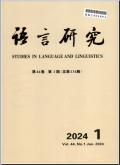Metacognition and Reading Comprehension
@@ Introduction Reading is a mysterious process that has attracted attention from psychologists, reading researchers and educators alike for decades. Currently, reading is viewed as a meaningconstructing process where the reader interacts with the text by simultaneously using information from a variety of sources ranging from one”s background knowledge of the content and about the world to the knowledge about the language in which the text is written (Mulling, 1994). Moreover, reading comprehension is achieved only after skillful orchestration of all the resources the reader possess when engaged in the act of reading. Among the various kinds of strategies a reader needs during the reading process are the monitoring strategies. In order to fully utilize the strategies, the reader needs to possess good metacognition. Metacognition refers to one”s deliberate conscious control of one”s cognition actions (Brown, 1980). Since it is crucial for success that we know what we know and what we don”t know and, consequently what to do about what we know and don”t know, it is not surprising to find the notion of metacognition being stressed in almost every situation of learning. Given the importance of metacognition in successful learning, the purpose of this paper is to explore the role metacognition plays in reading comprehension, and consequently, identify future research directions.
reading comprehension、background knowledge、reading process、future research、the world
H31;G63
2007-07-26(万方平台首次上网日期,不代表论文的发表时间)
共5页
7-11




